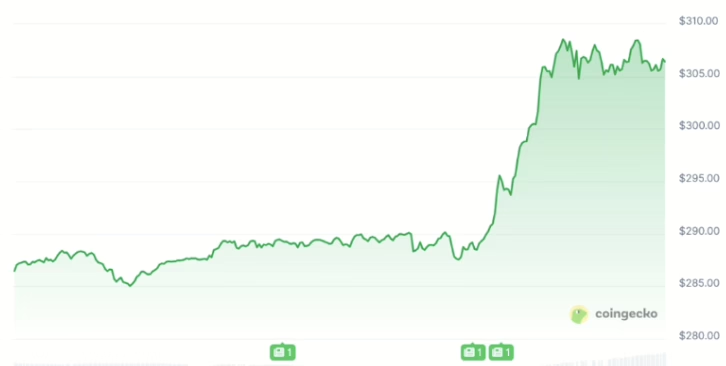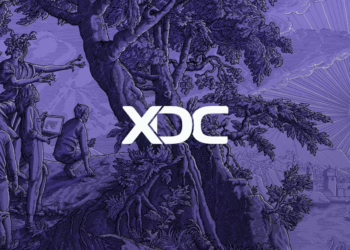Quick breakdown
- Monero blockchain hit by an 18-block reorg reversing 117 transactions.
- Qubic mining pool blamed after amassing over 51% of Monero’s hashrate.
- XMR token surged 7% to $308.55 despite network reliability concerns.
Monero faces major reorg event
Monero’s blockchain suffered an 18-block reorganization on Sunday, reversing around 117 confirmed transactions and reigniting concerns over the network’s long-term stability. The disruption began at block 3,499,659 at 5:12 a.m. UTC and concluded 43 minutes later at block 3,499,676, according to node operators who shared logs on X.
The breach was confirmed by cryptocurrency researcher Rucknium on GitHub and is being described by community members as the largest reorg in Monero’s history.
Qubic blamed for growing influence
The attack is tied to Qubic, an AI-focused blockchain and mining pool that recently secured majority control of Monero’s hashrate. Just last month, Qubic was responsible for a smaller six-block reorg. With more than 51% of the network under its influence, Qubic poses a significant centralization risk to the privacy token’s proof-of-work system.
Crypto podcaster xenu, who first flagged the incident, suggested Qubic’s actions may have been designed to mitigate price pressure on XMR, though the broader community remains skeptical.
Price defies network setback
Despite the severity of the breach, Monero’s native token XMR showed resilience. While the reorg was underway, the price traded steadily before climbing 7.4% from $287.54 to $308.55 within hours, CoinGecko data shows.

Some analysts, however, remain cautious. “Personally, I don’t consider the Monero network reliable at this point. I’ll stop accepting XMR for payments until this situation is resolved,” crypto commentator Vini Barbosa said on X.
Community eyes centralized safeguards
To curb future attacks, node operators may temporarily adopt Domain Name System (DNS) checkpoints, where trusted block data is fetched from community servers. Past discussions on solutions have included switching consensus mechanisms, merge-mining with Bitcoin or other cryptocurrencies, and adopting Dash’s ChainLocks. However, no consensus has been reached, leaving the network vulnerable.
Rucknium also noted that Monero’s existing 10-block lock mechanism was rendered ineffective, as the reorg exceeded the safeguard by eight blocks.
Security experts, including Yu Xian of SlowMist, warn that unless the Monero community addresses block reorganization risks, the network will continue to operate under constant threat.
If you would like to read more articles like this, visit DeFi Planet and follow us on Twitter, LinkedIn, Facebook, Instagram, and CoinMarketCap Community.
Take control of your crypto portfolio with MARKETS PRO, DeFi Planet’s suite of analytics tools.”





















